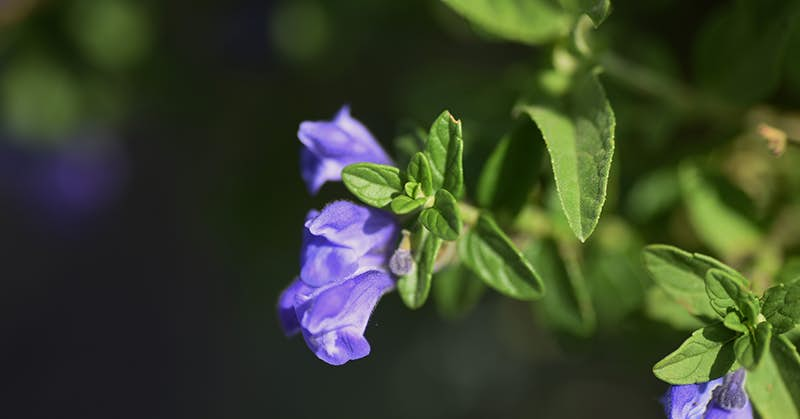
Keeping the brain working more effectively
When it comes to brain aging, this hard-working organ resembles a complicated machine whose individual working parts need support and maintenance to keep it working at full capacity. And studies show that skullcap can help with just that. During laboratory tests in Asia that examined how skullcap affects stem cells in the brain, scientists discovered that it promotes the production of new neurons from stem cells in the hippocampus – one of the brain’s crucial memory centers – and evidently speeds the brain’s ability to repair itself when necessary.2 Plus, other investigations have found that it promotes the expression of BDNF (brain-derived neurotrophic factor) which has a vital role in helping neurons survive and modulates the transmission of signals among neurons. We’ve talked about the remarkable memory benefits of BNDF many times. This natural compound also furthers neuronal plasticity, the process that shapes neural networks to facilitate the creation of new memories.3 In addition, skullcap can help the brain maintain the proper balance of neurotransmitters as neurons send signals to each other. When this balance goes out of whack, neurons can be damaged in ways that may lead to problems like Alzheimer’s disease and Parkinson’s disease.4 But, as researchers have found, skullcap can help maintain transmitter balance and improve both learning and memory.5Keeping the body younger
Other studies have revealed further impressive benefits of skullcap for aging which include:- Keeping your skin looking younger: Tests show that baicalin, a natural chemical in skullcap, can tighten skin, enhance the production of new skin cells, and keep skin looking more vibrant. In this process, it may also help prevent DNA damage in skin cells.6
- Treating pancreas problems: Studies demonstrate that in some cases, skullcap could prove to be a useful treatment for pancreatitis. A series of investigations shows that baicalin can reduce pancreatic inflammation and other processes that bring on pancreas damage.7
- Improving oral health: A review of studies of baicalin shows that it can kill off harmful bacteria in the mouth and support the immune system in its efforts to protect gum tissue from periodontal disease.8
- Reducing the pain and stiffness of arthritis: Investigations indicate that baicalin can reduce the swelling and joint damage caused by rheumatoid arthritis. Researchers say that baicalin also blocks inflammatory “cascades” that lead to arthritis.9
Using skullcap to improve memory, fight aging
Baicalin and skullcap are widely available in many different forms – capsules, tinctures, and extracts. This herb is generally very safe, but you should keep your dose down to around 500mg daily. Megadoses aren’t a good idea unless you’re under the care of a Traditional Chinese Medicine doctor or naturopathic physician. Side effects from taking large doses can include confusion, twitches, giddiness, and issues with your heartbeat. Best Regards, The Awakening From Alzheimer’s Team1 https://academic.oup.com/jpp/article/71/9/1353/6121997?login=false 2 https://www.ncbi.nlm.nih.gov/pmc/articles/PMC6493621/ 3 https://pubmed.ncbi.nlm.nih.gov/21600966/ 4 https://www.frontiersin.org/articles/10.3389/fnins.2021.578922/full 5 https://pubmed.ncbi.nlm.nih.gov/32045633/ 6 https://pubmed.ncbi.nlm.nih.gov/12576696/ 7 https://pubmed.ncbi.nlm.nih.gov/33536916/ 8 https://pubmed.ncbi.nlm.nih.gov/29857875/ 9 https://www.ncbi.nlm.nih.gov/pmc/articles/PMC3694363/


